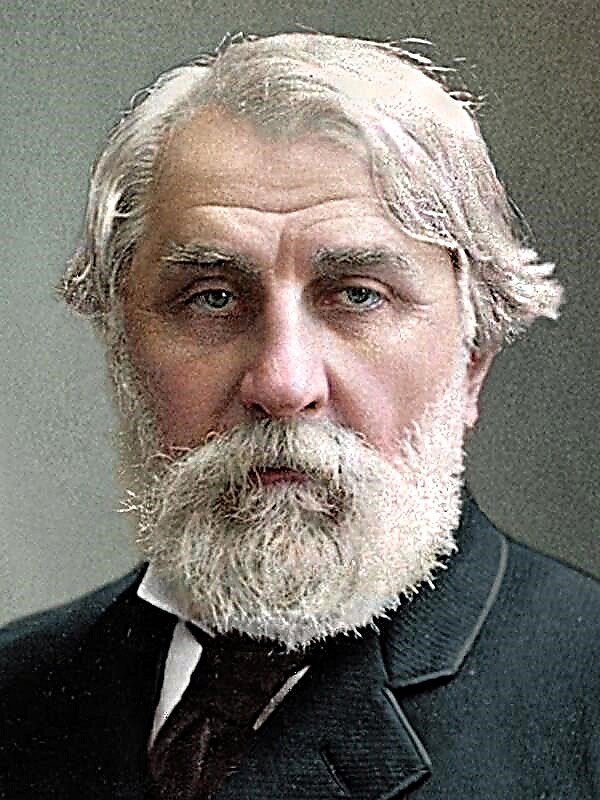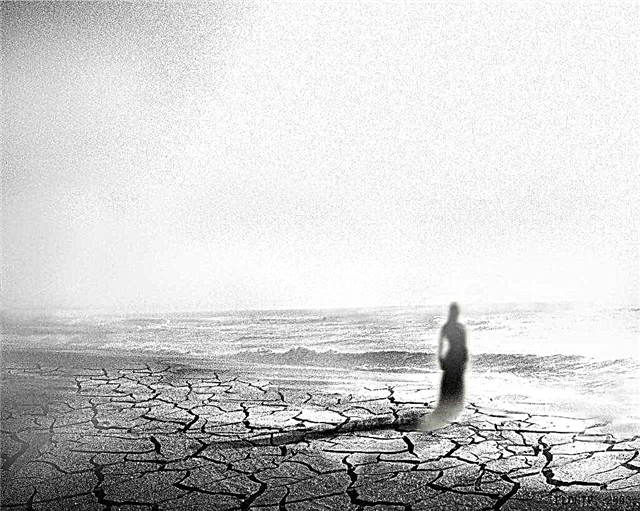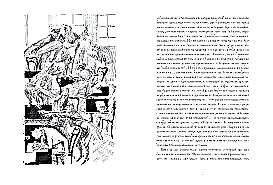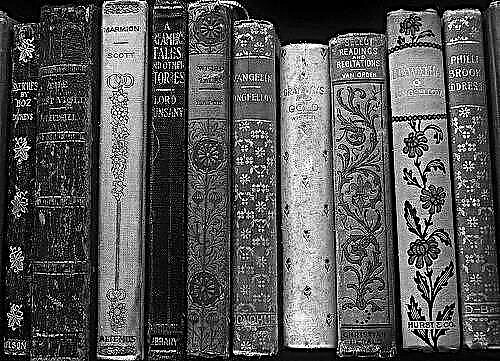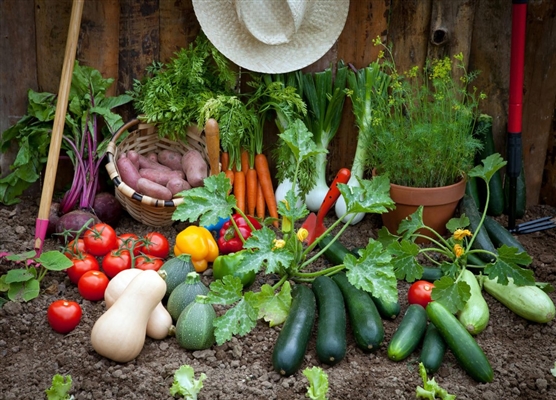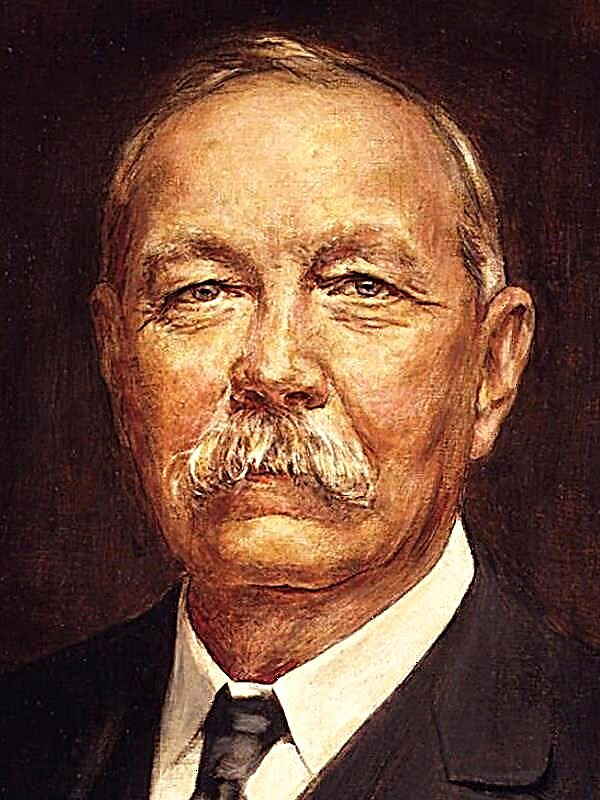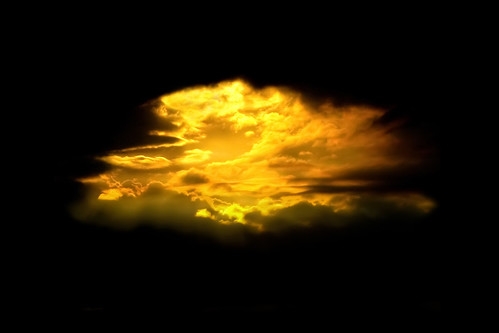Marina Ivanovna Tsvetaeva immortalized her name in literary history as a great poetess. She was born in 1892 in Moscow. In her own words, she began to write poetry at the age of seven. Her whole stormy and thorny life path was subsequently inextricably linked with creativity. And it, in turn, not only found sources of inspiration in acquaintance, communication and friendship with the great writers of that era, but also relied on childhood memories, life in exile, the tragedy of Russia's fate and personal dramas.
Poetry of Marina Tsvetaeva
The creative professions of Marina's parents (her father was a well-known philologist and art critic, her mother a pianist) had a direct impact on her childhood. She often traveled abroad with her parents, and therefore was fluent in several foreign languages, mostly French. Subsequently, Tsvetaeva did a lot of translations and writing critical articles and essays. But it was poetry that laid the foundation for her path. More often in French, Marina Ivanovna composed her first poems.
Collections
She began to collect the first book of poetry after Tsvetaev’s death from consumption in Tarusa. In October 1910, she was released in Moscow under the name "Evening Album." After the approving response to her by M.A. Voloshin, his friendship with the young poetess began.
In February 1912, after the wedding with Sergei Efron, the author again released the book. The second collection of poems “The Magic Lantern” was released. Exactly one year later, the third collection of “Two Books” was published.
From 1912 to 1915, Tsvetaeva worked on the book “Youthful Poems”. But, according to some sources, it was never published, but preserved in the form of manuscripts of the poetess. The book includes the poem "The Wizard."
It will be a long eight years since the publication of the third collection of poems before Marina Ivanovna again begins to publish collected works. She did not stop writing: the verses of 1916 will then be included in the first part of the Versts collection, and creations from 1917 to 1920 will constitute the second part of the collection. He will see the light in 1921. The period marked by the October Revolution and the changes provoked by it caused a poetic surge in Tsvetaeva's work, which was reflected in the second part of Verst. She perceived the political upheaval as the collapse of all hopes and was extremely upset by it. Many of her poems will subsequently become part of the book Swan Stan. But she, alas, did not go out during the life of the poetess.
In 1922, the books The End of Casanova and Tsar Maiden were published. A year later - “Craft” and “Psyche”.
In 1925, the Tsvetaeva family moved to France. They lived in the suburbs of Paris, in fact in poverty. Three years later, the collection "After Russia" was published. He was the last to be published during the life of Marina Ivanovna.
Cycles
From October 1914 to May 1915, Tsvetaeva created a cycle of tender verses inspired by her acquaintance with the poetess Sofia Parnok. There were many rumors about their love relationship, however, a cycle of seventeen poems came out under the name "Girlfriend".
The year 1916 was marked by the release of cycles of poems dedicated to the arrival of Osip Mandelstam in Moscow, as well as to Moscow itself. In the same year, verses from the cornucopia, verses to Alexander Blok were poured into the eponymous series “Poems to the Bloc”.
The summer of 1916, called by art critics the “Alexander Summer”, was marked by the creation of a cycle of poems by Anna Akhmatova. In the same year, against the background of disappointments and partings, Tsvetaeva created the cycle “Insomnia”, in which she revealed the themes of loneliness and solitude.
Seven poems written in 1917 formed the basis of the Don Juan cycle. This is a kind of reference to Pushkin's “Stone Guest”. Given the poet’s special attitude towards Pushkin, it seems that through her compositions she enters into a dialogue with him.
The year 1921 is associated with acquaintance with Prince S.M. Volkonsky. He is also devoted to poetry, united in the cycle "Disciple". Later Tsvetaeva wrote many lyric poems addressed to her husband, in the framework of the cycles “Marina”, “Separation”, “George”. Andrei Bely, whom Marina Ivanovna met in Berlin in 1922, spoke extremely highly of “Separation”.
In 1930, she wrote a requiem to Vladimir Mayakovsky, consisting of seven poems. The death of the poet deeply shocked Marina Ivanovna, despite the fact that the friendship between them at one time negatively affected the literary fate of Tsvetaeva.
In 1931, she began work on the cycle "Poems to Pushkin."
In 1932, the cycle “Ici-haut” was created (“Here - in the skies”), dedicated to the memory of a friend M. Voloshin.
Since July 1933, in parallel with the end of work on the poetic cycle “Table”, Tsvetaeva writes autobiographical essays “Laurel Wreath”, “Groom”, “Opening of the Museum”, “House at Old Pimen”. Two years later, she creates a cycle of poems on the death of the poet N. Gronsky "Tombstone", whom she met in 1928. In the town of Favier, a cycle “To the Fathers” was written, consisting of two poems.
Acquaintance and correspondence with the poet Anatoly Shteiger led to the creation of the cycle "Poems to the orphan."
Only in 1937, "Poems to Pushkin", work on which began in 1931, were ready for publication.
Subsequently, Tsvetaeva worked on the September and March cycles devoted to life in the Czech Republic, where she reunited with her husband after a long separation. The work ended with the cycle "Poems to the Czech Republic."
Art world
The poetry of Marina Tsvetaeva can be correlated with confession. She always vibrantly and sincerely surrendered to her work, like a true romantic, composing her inner pain, awe, and the whole gamut of feelings into a rhyme. The poetess did not demand too much from life, so the period of oblivion did not instill resentment or bitterness in her heart. On the contrary, it seemed that an even greater thirst for life appeared in it, which is why Tsvetaeva did not stop writing. And even in exile, despite all the hardships and hardships, her poetry received a second wind, reflecting on paper the special aesthetics of personal outlook.
Features
Both the poetic and prose works of Tsvetaeva were not and will not be fully understood by a wide circle of readers. She became an innovator of her time in the features and techniques of self-expression. The lyrical monologues of the poetess, like songs, have their own rhythm, their mood and motive. It gently and openly pours out the soul, then its lines are transformed into a passionate, unbridled stream of thoughts and emotions. At some point, she breaks into a cry, then there is a pause, a short silence, which can sometimes be more eloquent than any bright words. To understand the author well, you need to know the main stages of her biography, how she lived, how she thought at one time or another.
Tsvetaeva’s talent developed rapidly, especially against the background of her recognition by contemporaries. She devoted many cycles of her poems to many of them. Being passionate about nature, Marina Ivanovna drew inspiration from close relationships with many men and even a woman, despite the fact that she had a husband and children. A feature of her success in the literary field can be considered the epistolary genre, generously applying which, Tsvetaeva allowed many facts of her life and her own vision of the picture of the world to come out of the shadows.
Themes of creativity
Marina Tsvetaeva loudly manifested that she sees and feels. Her early lyrics are filled with inner warmth, the memory of childhood and newfound love. Selflessness and sincerity opened her doors to the world of Russian poetry of the 20th century.
The poetess created verses, evoking every word from the depths of her soul. At the same time, poems were written easily and passionately, because she did not seek to subordinate her work to the expected representations of the public. And the theme of love in Tsvetaeva’s poetry, perhaps, can be considered the standard of self-expression. This was recognized by literary critics, however, the poet's talent was still challenged.
With the passage of time, Tsvetaeva’s poetry inevitably changes. In the years of emigration and lack of money, she becomes mature. Marina Ivanovna appears as an orator on the platform of her personal growth. Friendly communication with Mayakovsky introduced the features of futurism into her work. However, the interconnectedness of her poems with Russian folklore is noticeable. Hence the theme of the motherland in the works of Tsvetaeva. The poetess had a clear civic position, expressed in the rejection of the established political system at the dawn of the October Revolution. She wrote a lot about the tragic death of Russia and its torment. She reasoned about this during the years of emigration to Germany, the Czech Republic, and France. But in the years of Paris, Tsvetaeva wrote more prose works, supplemented by memoirs and critical articles. This measure became compelled, since many foreign publications were unfriendly towards the poetess, who hoped that prose would become her reliable rear.
The image of Tsvetaeva in the lyrics
A poetic appeal to the poetess was revealed not only in the verses of her contemporaries, but also those who were not personally acquainted with her. The artistic image of Tsvetaeva began to take shape in her own poems. For example, in the Don Juan and Insomnia cycles, the boundaries between the author and the lyrical heroine are somewhat blurred. As Tsvetaeva dedicated poetry, for example, to Alexander Blok, so they dedicated her. The same M. Voloshin, who responded violently and positively to the first collection of the poetess “Evening Album”, wrote a dedication to “Marina Tsvetaeva”. He sang not her rebellious disposition, but the fragile feminine principle.
Beloved woman Tsvetaeva, Sofia Parnok in her poems compares her with the historical namesake Marina Mnishek. For the author, the poetess appears as a savior angel from heaven.
In the lyrics of sister Anastasia (Asi) Tsvetaeva we have the opportunity to get acquainted with the comprehensive contradictory nature of Marina Ivanovna, who for many years felt young and innocent.
In Andrei Bely Tsvetaeva, she appears in the image of a unique and amazing woman. He himself considered her work innovative, and therefore assumed her inevitable clash with conservative critics.
Also, the work of Marina Tsvetaeva did not leave indifferent those poets of the 20th century who did not know her personally. So, Bella Akhmadullina compares her image with an inanimate piano, both of which are considered perfection. At the same time emphasizing that these are two opposites. Tsvetaeva saw her as a loner by nature, unlike an instrument that needs someone to play it. At the same time, Akhmadullina empathized with the poetess who had already left prematurely. She saw her tragedy in the absence of proper support and support during her life.
Poetics
Genres
Getting acquainted with the work of Marina Tsvetaeva, you can feel that she was looking and trying to create her own genre, branched off from generally recognized canons. The theme of love and passion was clearly reflected in poems and in Tsvetaeva’s poems. Thus, it is no coincidence that the genres of the lyric-epic poem and elegy pass through the poetry’s lyrics. She literally absorbed this desire for romanticism with the milk of her mother, who really wanted to captivate her daughter with what she considered feminine, beautiful and useful, whether it be playing musical instruments or a love of comprehension of foreign languages.
Tsvetaeva’s poems always had their own lyrical subject, which often acted as an image of herself. The heroine often combined several roles in herself, thereby allowing her personality to grow. The same thing happened with the poetess. She always sought to know the entire existing depth of relations between man and the world, the verge of the human soul, thereby maximizing the reflection of these observations in her lyrics.
Poetic Sizes
The size of the verse is its rhythm. Tsvetaeva, like many contemporary poets of the 20th century, often used a three-syllable size, dactyl, in her work. For example, in the poem "Grandmother". Dactyl is reminiscent of colloquial speech, and the poet's verses are vivid monologues. Alas, Tsvetaeva did not know her grandmother from her mother’s side, but from childhood she remembered her portrait, which was hanging in the family’s house. In poetry, she tried to mentally enter into dialogue with her grandmother in order to find out the source of her rebellious disposition.
In the poem "My poems written so early»Used iambic with a cross rhyme, which emphasizes the hardness of intonation. The same size and rhyme are characteristic of the poems “Books in red binding”, “Longing for the Motherland! Long. .. ". The latter was created during the years of emigration, and therefore is saturated with everyday disorder, poverty and confusion in a strange world.
“Who is made of stone, who is made of clay” is a white verse that uses amphibrach with cross-rhyming. This poem was published in the collection "Versts". Tsvetaeva expresses her rebellious mood in lines about sea foam, saying that she rushes into the sea element of life.
Means of Expression
In the cycle of poems dedicated to Alexander Blok, many punctuation marks were used that convey Tsvetaeva’s forbiddenness and trembling feelings, because she was not personally acquainted with Blok, but admired him immensely. The poetess used a lot of epithets, metaphors, personifications, as if exposing her spiritual element. And intonation pauses only enhance this effect.
In the same “Longing for the Motherland” one feels a strong emotional tension of the author, transmitted through the metaphorical identification of his native country with a bush of mountain ash and an abundance of exclamation marks.
The poem “Books in red binding” conveys the poet’s longing for her mother who died early, for her childhood. Penetrating reading is facilitated by rhetorical questions, epithets, personifications, metaphors, exclamations and periphrases.
The poem “Grandma” also has many epithets, repetitions, and oxymorons. Tsvetaeva mentally feels the kinship of souls with her grandmother.
Using several poems as an example, it is easy to see that exclamations prevailed in the lyrics of Marina Tsvetaeva. This testifies to her dynamic nature, elevated feelings and a certain ultimate state of mind.

